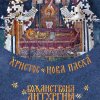Research Interests: Comparative historical sociology; nationalism; post-Communist transitions; Balkan history; US foreign policy and social theory.
.His interests include comparative historical analysis, historical sociology, political theory, post-communism and transitions into democracy, ethnic relations, civil war, and social movements. In his dissertation, he investigates the reasons behind the relative successes and failures of post-Cold War separatist movements.
Previous Degrees: AB in Sociology, Princeton University (Summa Cum Laude & Phi Beta Kappa)





